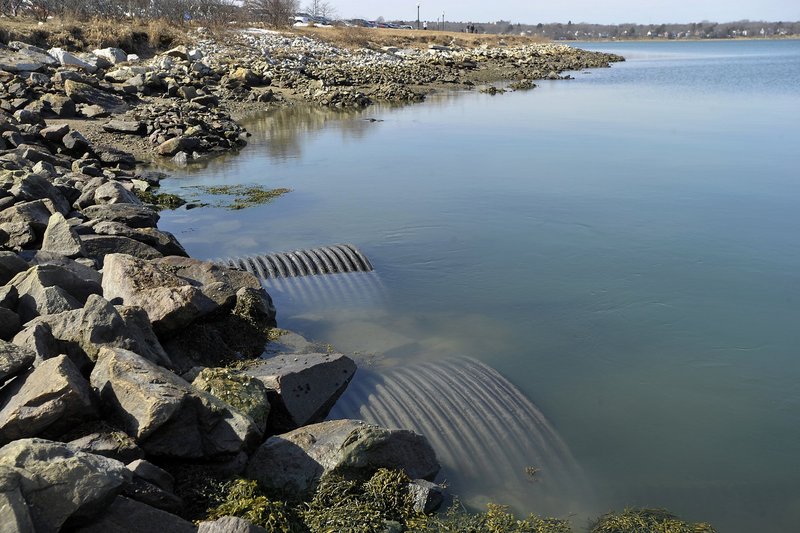A functioning city needs functioning infrastructure, and a key part of Portland’s infrastructure — its stormwater and sewer system — isn’t doing its job. The system often overflows during rainstorms, sending untreated sewage and rainwater tainted with oil, gas, antifreeze, litter and salt into Casco Bay.
Now the city is releasing details of a proposal to help fund system upgrades by implementing a stormwater fee. Nobody likes new fees, but the city has to address the problem, and the other methods of funding improvements would overcharge some users and undercharge others.
The proposed rate structure, on the other hand, aims to spread the costs fairly: Those Portland property owners who produce the most runoff would pay the most in fees. This is an equitable proposal, and city officials should move ahead with it.
Portland’s current stormwater and sewer system works well most of the time. When there’s light rain, the system can handle the extra runoff along with household and commercial sewage. Downpours, though, put a lot of stress on the system, and the resulting water pollution can make swimmers sick and contaminate seafood.
The city is under federal and state orders to fix the problem. Toward this end, councilors recently approved $170 million in sewer and stormwater upgrades, and the new stormwater fee would help cover these costs.
The other means of paying for the project are unfair. Currently, all stormwater improvements are funded with sewer fees, which are based on water usage. Continuing this system would undercharge large property owners who don’t use a lot of water, but whose square footage includes extensive parking lots and/or other hard surfaces that shed rainwater full of pollutants into waterways.
Another method — using property taxes — would exclude large nonprofits such as hospitals and churches, shifting more of the burden to businesses and homeowners.
The fee could run into the five figures annually for some property owners, but there are ways to lower the costs. The fee can be reduced for properties whose owners eliminate unnecessary pavement or install rain barrels, rain gardens, green roofs and commercial treatment centers. It would be a win-win, cutting both the level of runoff and property owners’ bills from the city.
This isn’t being sprung on property owners. A city task force first floated the idea of a stormwater fee in early 2012, a City Council committee will review the rate structure Thursday, and the fee — originally set to take effect in January — will likely be delayed for another year to ensure that people understand the reasons for it.
This gradual rollout may not ease all resistance, but the fact remains that the fee, as proposed, is both an obligation and the fair and right thing to do.
Send questions/comments to the editors.



Success. Please wait for the page to reload. If the page does not reload within 5 seconds, please refresh the page.
Enter your email and password to access comments.
Hi, to comment on stories you must . This profile is in addition to your subscription and website login.
Already have a commenting profile? .
Invalid username/password.
Please check your email to confirm and complete your registration.
Only subscribers are eligible to post comments. Please subscribe or login first for digital access. Here’s why.
Use the form below to reset your password. When you've submitted your account email, we will send an email with a reset code.